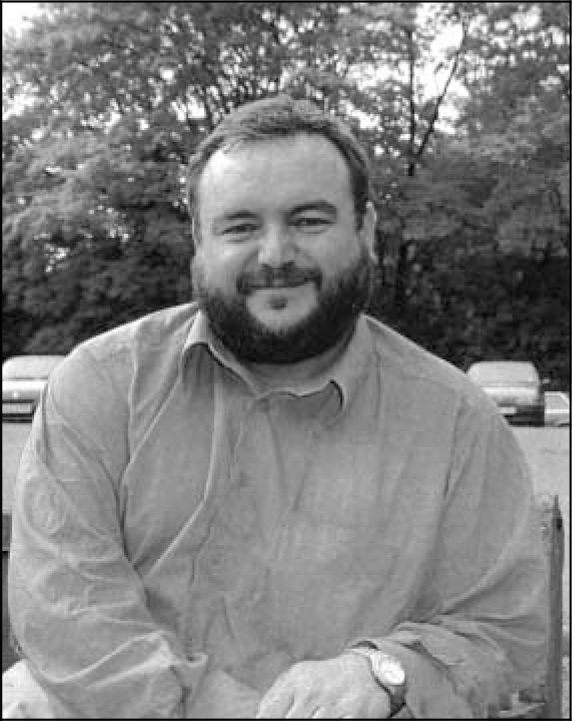Winston McCartney died suddenly on 15 June 2005 at the age of 47. He had only worked in mental health services since 1996, yet within that relatively short period he made an enormous impact. He became Co-Chair of the Special Committee for Patients and Carers, he sat on Council and he spoke regularly with government ministers and other politicians. With his energy, passion and commitment and his human frailty he touched and enriched the lives of a great many people. He will be particularly remembered for advocating for service users, lobbying for improved services and improving communication and cooperation between service users and service providers.
Winston started his working life as a fitter in Shorts’ aircraft factory in Belfast. He worked at Queen's University Belfast in aerospace research, then trained as a film editor. While at Queens in the 1980s he was a founder of The Groucho Club which celebrates the work of Groucho Marx and is still active today. He became a dubbing editor, then post-production manager for the BBC, then a lecturer in media studies. In January 1996, after a period of ill health he became a mental health advocate for the Northern Ireland Association of Mental Health. He carved out a niche in this role, taking a keen interest in human rights and mental health law and he represented a number of patients at mental health review tribunals. In 1998 he became the Northern Ireland representative on the College's Patients’ and Carers’ Liaison Group. In 1999 he was elected Co-Chair of the Group which became a Special Committee of Council in 2001. He was committed to strengthening this Special Committee, rejecting tokenism and striving for proper, meaningful representation of users and carers in the work of the College. He loved to visit the College offices in London, partly as a break from the pressures of his other work, and he was respected and admired by all the College staff who worked with him.

Winston advocated for service users both individually and collectively. He was a powerful communicator and he wrote and spoke with authority, warmth and compassion. In the Northern Ireland Assembly he helped establish an all-party interest group in mental health. He had an enviable capacity to network and he brought many national and international experts to Northern Ireland. He had a particular ability to establish relationships with a wide range of people and he worked closely with politicians and with psychiatrists, including the past President of the College, Dr Mike Shooter. He contributed to the work of the Mental Health and Learning Disability Review in Northern Ireland and was to have spoken at the College Annual General Meeting in 2005. Winston contributed several chapters to the forthcoming Gaskell book Psychiatry in the 21st Century: Principles, Possibilities and Challenges and he worked on the forthcoming revision of the College's council report on patient advocacy.
Winston blazed a trail. He was a character, widely known and respected for his knowledge, energy and passion. Even those who may have disagreed with his views had to recognise his good intentions and admire his commitment. Unfortunately the pace of his life took a toll on his health and he was ill for much of the 2 years up to his death. He is greatly missed by his wife Jean, his three children and by his many friends and colleagues. He leaves a unique legacy, for he demonstrated the power of a cooperative approach involving service users, carers and service providers. His untimely death challenges us all to build upon the vision he shared.



eLetters
No eLetters have been published for this article.